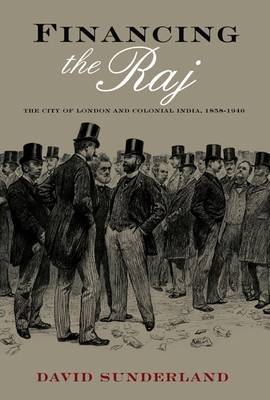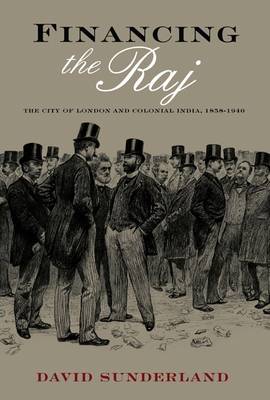
- Retrait gratuit dans votre magasin Club
- 7.000.000 titres dans notre catalogue
- Payer en toute sécurité
- Toujours un magasin près de chez vous
- Retrait gratuit dans votre magasin Club
- 7.000.0000 titres dans notre catalogue
- Payer en toute sécurité
- Toujours un magasin près de chez vous
Financing the Raj
The City of London and Colonial India, 1858-1940
David Sunderland
Livre relié | Anglais
177,45 €
+ 354 points
Description
A detailed analysis of how government in India was financed during the period of direct British rule. This book explores the financial relationship between the Indian government, as represented by the India Office, and the City of London during the period of direct British rule. The universally accepted view is that the Office acted in the interests of the City and to the detriment of India. Financing the Raj disputes this conclusion. It argues that India was a constituent part of the City, contributing to and benefitting from its operation through the formation of close symbiotic and trust relationships, the exchange of gifts, the recycling of funds, and, perhaps most significantly, the support of the gold standard. The book examines the Office's activities from a British and practical perspective. In the first part, the issue and sale/purchase on the London market of Indian government debt is explored. Next, the author discusses the purchase of silver and the 'scandal' of 1912, when the award of a major contract to the family firm of the Under Secretary of State for India led to accusations of cronyism and fraud. The finance of Indian trade, the management of exchange rates and the transfer from India to London of the money needed to meet the Indian government's UK commitments are then investigated. The book concludes with an analysis of the Office's investment role and its management of the three cash reserves held in the capital. Financing the Raj overturns many myths, demonstrating that those involved in Indian finance did work in the best interests of India and were well aware of the close interrelationship between Indian finance, the City of London and the wider British economy. It will be of interest both to historians of empire and historians of finance. DAVID SUNDERLAND is Reader in Business History at the University of Greenwich and the author of four monographs and numerous articles on the economic history of London, British Imperialism and nineteenth-century social capital. He is also Series and Collection editor of Pickering & Chatto's Britain and Africa series of source monographs.
Spécifications
Parties prenantes
- Auteur(s) :
- Editeur:
Contenu
- Nombre de pages :
- 256
- Langue:
- Anglais
Caractéristiques
- EAN:
- 9781843837954
- Date de parution :
- 21-02-13
- Format:
- Livre relié
- Format numérique:
- Genaaid
- Dimensions :
- 152 mm x 236 mm
- Poids :
- 589 g

Les avis
Nous publions uniquement les avis qui respectent les conditions requises. Consultez nos conditions pour les avis.






